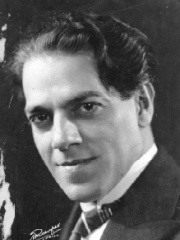
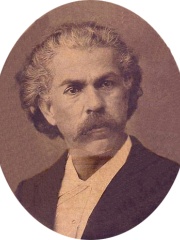
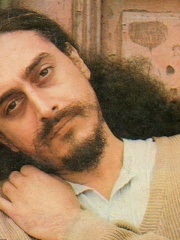
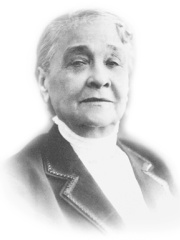
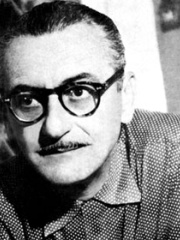
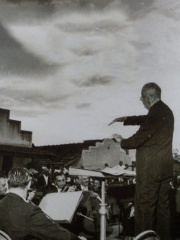

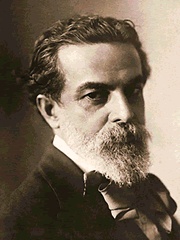
The Most Famous
COMPOSERS from Brazil
This page contains a list of the greatest Brazilian Composers. The pantheon dataset contains 1,451 Composers, 10 of which were born in Brazil. This makes Brazil the birth place of the 23rd most number of Composers behind Netherlands, and Romania.
Top 10
The following people are considered by Pantheon to be the top 10 most legendary Brazilian Composers of all time. This list of famous Brazilian Composers is sorted by HPI (Historical Popularity Index), a metric that aggregates information on a biography's online popularity. Visit the rankings page to view the entire list of Brazilian Composers.

1. Heitor Villa-Lobos (1887 - 1959)
With an HPI of 73.01, Heitor Villa-Lobos is the most famous Brazilian Composer. His biography has been translated into 50 different languages on wikipedia.
Heitor Villa-Lobos (March 5, 1887 – November 17, 1959) was a Brazilian composer, conductor, cellist, and classical guitarist described as "the single most significant creative figure in 20th-century Brazilian art music". Villa-Lobos has globally become one of the most recognizable South American composers in music history. A prolific composer, he wrote many orchestral, chamber, instrumental and vocal works, totaling over 2,000 works by his death in 1959. His music was influenced by both Brazilian folk music and stylistic elements from the European classical tradition, as exemplified by his Bachianas Brasileiras (Brazilian Bach-pieces) and his Chôros. His Etudes for classical guitar (1929), dedicated to Andrés Segovia, and his 5 Preludes (1940), dedicated to his spouse Arminda Neves d'Almeida, a.k.a. "Mindinha", are important works in the classical guitar repertory.

2. Antônio Carlos Gomes (1836 - 1896)
With an HPI of 61.59, Antônio Carlos Gomes is the 2nd most famous Brazilian Composer. His biography has been translated into 29 different languages.
Antônio Carlos Gomes (Brazilian Portuguese: [ɐ̃ˈtoni.u ˈkaʁluz ˈɡomis, ɐ̃ˈtonju -]; 11 July 1836 in Campinas – 16 September 1896 in Belém) was a Brazilian composer notable for being the first New World composer whose work was accepted by Europe. He was the only non-European who was successful as an opera composer in Italy, during the "golden age of opera" contemporary to Verdi and Puccini, and the first composer of non-European lineage to be accepted into the classic tradition of music. Younger than Verdi, yet older than Puccini, Carlos Gomes achieved his first major success in a time when the Italian audiences were eager for a new name to celebrate and Puccini had not yet officially started his career. After the successful premiere of Il Guarany, Gomes was considered the most promising new composer. Verdi said his work was an expression of "true musical genius". Liszt said that “it displays dense technical maturity, full of harmonic and orchestral maturity.”

3. Egberto Gismonti (b. 1947)
With an HPI of 60.02, Egberto Gismonti is the 3rd most famous Brazilian Composer. His biography has been translated into 15 different languages.
Egberto Amin Gismonti (born 5 December 1947) is a Brazilian composer, guitarist and pianist.

4. Chiquinha Gonzaga (1847 - 1935)
With an HPI of 58.73, Chiquinha Gonzaga is the 4th most famous Brazilian Composer. Her biography has been translated into 20 different languages.
Francisca Edwiges Neves Gonzaga, better known as Chiquinha Gonzaga (Portuguese pronunciation: [ʃiˈkiɲɐ ɡõˈzaɡɐ]; October 17, 1847 – February 28, 1935) was a Brazilian composer, pianist and the first woman conductor in Brazil. Chiquinha Gonzaga was the first pianist of "choro" and author of the first carnival march, "Ó Abre Alas" (1899). Her plays and operettas, such as Forrobodó and Jurití, were a great success with the public because they used elements of Brazilian popular culture of the time.

5. Camargo Guarnieri (1907 - 1993)
With an HPI of 58.51, Camargo Guarnieri is the 5th most famous Brazilian Composer. His biography has been translated into 17 different languages.
Mozart Camargo Guarnieri (February 1, 1907 – January 13, 1993) was a Brazilian composer. Guarnieri was born in Tietê, São Paulo. He studied piano, composition, and conducting in São Paulo and Paris. His compositions received significant recognition in the United States during the 1940s, leading to conducting opportunities in major American cities. A key figure in the Brazilian national school, Guarnieri served as a conductor, a member of the Academia Brasileira de Música, and Director of the São Paulo Conservatório. His extensive oeuvre includes symphonies, concertos, operas, chamber music, piano pieces, and songs. Regarded by some as the most important Brazilian composer after Heitor Villa-Lobos, Guarnieri was awarded the Gabriela Mistral Prize shortly before his death.

6. Ary Barroso (1903 - 1964)
With an HPI of 58.32, Ary Barroso is the 6th most famous Brazilian Composer. His biography has been translated into 19 different languages.
Ary Evangelista de Resende Barroso (Portuguese pronunciation: [aˈɾi baˈʁozu]; 7 November 1903 – 9 February 1964) was a Brazilian composer, pianist, soccer commentator, and talent-show host on radio and TV. He was one of Brazil's most successful songwriters in the first half of the 20th century. Barroso also composed many songs for Carmen Miranda during her career.

7. Francisco Mignone (1897 - 1986)
With an HPI of 57.60, Francisco Mignone is the 7th most famous Brazilian Composer. His biography has been translated into 15 different languages.
Francisco Paulo Mignone (September 3, 1897, São Paulo – February 19, 1986, Rio de Janeiro) was one of the most significant figures in Brazilian classical music, and one of the most significant Brazilian composers after Heitor Villa-Lobos. In 1968 he was chosen as Brazilian composer of the year.

8. Cláudio Santoro (1919 - 1989)
With an HPI of 55.40, Cláudio Santoro is the 8th most famous Brazilian Composer. His biography has been translated into 17 different languages.
Cláudio Franco de Sá Santoro (23 November 1919 – 27 March 1989) was an internationally renowned Brazilian composer, conductor and violinist.

9. Alberto Nepomuceno (1864 - 1920)
With an HPI of 54.49, Alberto Nepomuceno is the 9th most famous Brazilian Composer. His biography has been translated into 17 different languages.
Alberto Nepomuceno (July 6, 1864 – October 16, 1920) was a Brazilian composer and conductor.
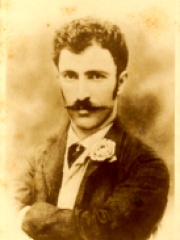
10. Alexandre Levy (1864 - 1892)
With an HPI of 53.94, Alexandre Levy is the 10th most famous Brazilian Composer. His biography has been translated into 16 different languages.
Alexandre Levy (10 November 1864 – 17 January 1892) was a Brazilian composer, pianist and conductor. Born in São Paulo, he pioneered a fusion of classical composition with Brazil's popular folk music and rhythms. Levy died prematurely at the age of 27, an early member of the 27 Club age. His hometown grants a prestigious award in his name. His Jewish family came from France and was musically active. His father founded the most important music business of the city and was himself a clarinetist. Darius Milhaud, in his ballet Le Bœuf sur le toit, borrowed a theme from Levy's Tango Brasileiro.
People
Pantheon has 10 people classified as Brazilian composers born between 1836 and 1947. Of these 10, 1 (10.00%) of them are still alive today. The most famous living Brazilian composers include Egberto Gismonti. The most famous deceased Brazilian composers include Heitor Villa-Lobos, Antônio Carlos Gomes, and Chiquinha Gonzaga.
Living Brazilian Composers
Go to all RankingsDeceased Brazilian Composers
Go to all RankingsHeitor Villa-Lobos
1887 - 1959
HPI: 73.01
Antônio Carlos Gomes
1836 - 1896
HPI: 61.59
Chiquinha Gonzaga
1847 - 1935
HPI: 58.73
Camargo Guarnieri
1907 - 1993
HPI: 58.51
Ary Barroso
1903 - 1964
HPI: 58.32
Francisco Mignone
1897 - 1986
HPI: 57.60
Cláudio Santoro
1919 - 1989
HPI: 55.40
Alberto Nepomuceno
1864 - 1920
HPI: 54.49
Alexandre Levy
1864 - 1892
HPI: 53.94
Overlapping Lives
Which Composers were alive at the same time? This visualization shows the lifespans of the 9 most globally memorable Composers since 1700.

